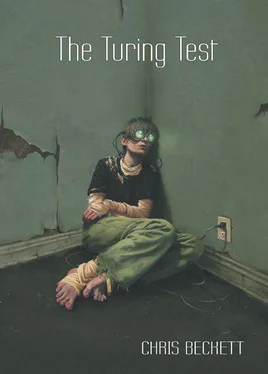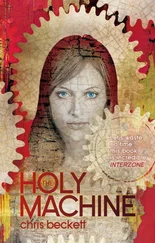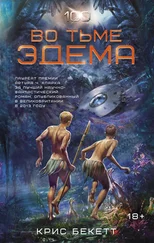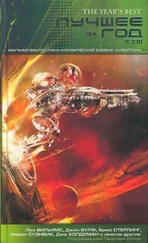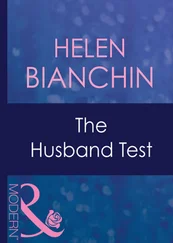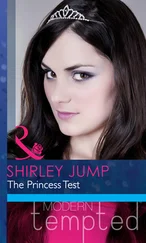“Don’t forget my car!” wailed Clarissa.
Somehow we manhandled her invalid car into the back of the truck. God knows why we agreed to take it. We would have been within our rights to say it was too heavy and left it behind. But Clarissa was powerful in some ways. She always had been. However much you might resent it, however much you told yourself that there was no reason at all to comply, it was hard not to do what she asked.
“Don’t expect us to bale you out like this again,” Richard told her as he bandaged her foot up back at her house. “Next time it’ll be Agents.”
None of us is sure what Agents really are, except that they are the servants of the Hub in the physical world. They have no visible faces. Their smooth heads and bodies are covered all over with a costume or skin in a special shade of blue which isn’t picked up by the Field sensors, and is therefore invisible to consensuals. Some of us think they are simply robots of some kind, but others maintain that they are a new kind of physical human being, bred and raised apart from us for the Hub’s own purposes. But, whatever they are, we fear them almost as much as do the consensuals, who only know of them by rumour and can only infer their presence from secondary clues.
“I couldn’t have borne that,” Clarissa murmured, “not Agents coming for me down there in the dark.”
“Well it’s your choice,” Richard told her. “You get yourself in a fix like that again, and that’s all the help you’ll get.”
He had been married to her once, before the days of Terence. Absurd as it now seemed, they had once, briefly, been lovers, enchanted by the sheer fact of one another’s presence in the world. And even now, absurdly, Clarissa attempted to defuse his anger by flirting with him.
“I know I’ve been a silly girl, Richard dearest, but I promise I won’t do it again.”
* * *
I’m thinking about what I wrote earlier:
‘The rest of us took the position,’ I said, ‘that we didn’t like having to deal with the consensual world, but it was sometimes a necessary evil…’
I’m imagining Clarissa reading that and snorting with derision.
‘Would you prefer it then if there was just us and no consensual world at all?’
Actually that very thing is looking increasingly on the cards.
When the consensual cities were first established as a way of withdrawing human beings from an environment which they were about to destroy, it was decided that these virtual cities would be congruent with the old physical ones. There were three reasons for this. Firstly many people could only be persuaded to accept consensual status on the basis that they would still have access to what they still thought of then as the ‘real world’. Secondly, it was thought important to allow consensuals to continue to be able to interact with those of us who bought an exemption from the dephysicalisation process, by paying the enormous levy and by allowing ourselves to be sterilised. (In those days, after all, physicals and consensuals might be brother and sister, father and son, schoolmates, life-long friends…) And thirdly it was because the processing capacity of the Hub, though huge, was finite and a consensual world based on the physical one was less heavy on the Hub’s resources than a purely invented one.
All three of those considerations have largely ceased to apply. The Hub has grown bigger, the physicals and the consensuals have grown apart and the consensuals have long since lost any sense of the physical world as being the ‘real’ one. So it would now be politically and technically possible for the Hub to decouple the physical city from the consensual one. In some ways this would be much easier than maintaining the status quo with its costly network of sensors.
But I suppose, if I am honest, that when I contemplate the possibility of waking up to a London where the implants no longer work, the consensuals can no longer be encountered and we are left on our own among the ruins, then I don’t welcome it. In fact what I experience is a sense of dread, abandonment, isolation. I suppose I simply rationalise this feeling by saying that we need the consensuals for practical reasons, that their presence is a necessary evil.
* * *
I think Clarissa’s promise held for all of two days before she was off in her car again. Within a week she was back in Walthamstow, though she avoided the station and didn’t make any scenes. Before the end of the month, she was charging up the battery for a major trip, right into the centre of London. And then she was off again in earnest, bumping and bouncing grimly along the road and stubbornly refusing to think about how far her battery would take her.
As ever she drove with her implant switched off. She saw empty houses, abandoned petrol stations, an empty road, badly damaged by years of frost. But once in a while she stopped for that hit she so constantly craved, that momentary burst of comfort and reassurance that came from switching on her implant and seeing a living city emerging from the silent ruins.
“I’m going down to Piccadilly Circus,” she told the people outside a row of shops in Stoke Newington. “They used to take me there when I was a little girl, to look at the coloured lights.”
The shoppers all turned away.
“I used to love those lights,” she told a man outside a betting shop in Islington, “the way they rippled and flowed. All that electricity! All that lovely colour!”
“Why don’t you go home, spook?” the betting man muttered as he hurried off.
“I expect they still have lights like that now, don’t they?” she asked a young woman in King’s Cross, “Not real ones obviously, but ones for you people to see?”
“Oh yes,” said the young woman, whose name was Lily, “they’re lovely lights in Piccadilly Circus, but they’re quite real you know. They’re not physical or nothing like that.”
Lily was not very bright and was happy to be friendly with anyone. She had a simple round very low-res face that was quite flat and looked like something from a cartoon strip. Consensuals could choose their own appearance and be as pretty and as interesting and as high-resolution as their bank balances would allow, but some consensuals couldn’t afford much in the way of looks – and Lily was very obviously poor. Her eyes were dots, her skin a completely uniform pink, her clothes mere slabs of colour and her smile a simple upward curve of the single line that was her mouth.
“I’m pretty sure they’re not physical anyway,” she said, in her tinny little low-res voice.
And then she realised she had been rude and the smile abruptly inverted itself into a downward curve of regret.
“Oh dear. I didn’t mean to say there was something wrong with being – you know – physical. That came out all wrong.”
“Oh don’t worry. I get that all the time. And you’re the first friendly person I’ve met since I left home.”
Clarissa had opened a flask of coffee and, still sitting in her little car, she poured herself a small cup. It was mid-October, a fresh autumn day getting on towards evening, and she was beginning to feel the cold.
“My father took me to see the lights in Piccadilly Circus when I was a little girl. Apparently when we got there I asked him where the clowns and tigers were. ‘And where are the pretty ladies in tights?’ I wanted to know. He said it wasn’t that kind of circus: ‘Circus just means a circle for the cars to go round.’ I don’t remember that conversation myself, but I do remember standing there with the beautiful electric lights all round me and realising that I didn’t care about the tigers and the pretty ladies. Colours are so magical when you are a child. I looked one way and then the other, but I wanted to see it all at once, so in the end I decided to spin round and round on the spot.”
Читать дальше
